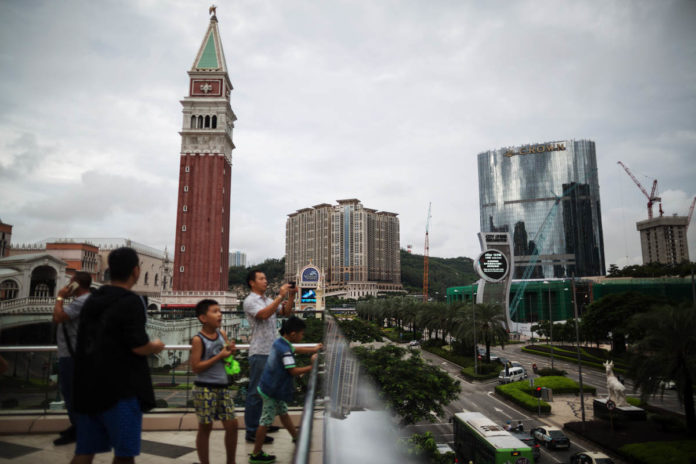Macau (MNA) – In any scenario that will be verified, “the Macau government has made a huge leeway to make any demands on the casino gaming operators it appropriate, even given that these existing operators have positively changed the face of Macau,” stated Pedro Cortés and António Lobo Vilela in a recent “Macau’s gaming industry legal outlook for 2020-22” paper.
Pedro Cortés, from Rato Ling Lei & Cortés legal office, and António Lobo Vilela, a legal adviser to the Secretary for Economy and Finance on gaming and gaming related matter, argue that the news will only come with the entry into office of the new government: “The near future will tell us (in particular once a new Macau government is elected in 2019) what the new features of the industry, if any, will be and what requisites, conditions and demands will be put in place post 2020/2022.”
The paper, recently published in the International Financial Law Review website, also underlines the need of “several legal developments,” saying they “have been long awaited” and mentioning as examples the gaming chips, the administrative infractions regime and key casino employees.
“Having become the gambling mecca of the world, Macau now needs to evolve into a highly regulated gaming jurisdiction,” emphasises Cortés and Vilela. “Competition is different from what it was in 2002. It is much fiercer nowadays,” quoting Singapore, Cambodia, Vietnam and the Philippines as “very mature gaming jurisdictions.” Also Japan, that “has made a decisive step towards Integrated Resorts legislation, which will put additional pressure on the Macau gaming industry.”
Nevertheless, both authors state that “despite the proliferation of gaming centres across the globe and in Asia Pacific in particular, we believe that Macau will remain the centre of the world gaming industry.” Besides, the rise and development of Henqin Island, just across the river, is expected to benefit Macau as a real entertainment hub. Heightened competition will act as an incentive for Macau’s industry to expand, evolve and offer a broader range of different types of entertainment to its visitors.”
Extension and amendments
Cortés and Vilela don’t forget the fact that SJM and MGM finishes their concessions earlier. “With the future of the gaming industry due to be decided soon, these are testing times for gaming operators such as SJM and MGM,” adding that “Casino gaming sub-concessions have no true autonomy from the concessions; they are fully under the umbrella of the casino gaming concession.”
From here, the authors analyse several scenarios, namely the one that goes to extend the concessions by up to five years. If this is the path, the casino gaming concession and sub-concession contracts would lapse up to March 31, 2027, for SJM and MGM, and June 26, 2027, for Wynn and Melco and Galaxy and Venetian. “Any other scenario would require an amendment to the current Macau Gaming Law,” they state.
Amendments that could be made might include, according Cortés and Vilela, “the granting of an additional power to the Macau Chief Executive to further renew the casino gaming concessions by, for example, an additional five year period (until 2032); or the provision of an exception to the public tender principle, by turning it for instance into a hybrid principle, applicable.”
However, they underline, “any amendment to the Macau Gaming Law must follow a proper legislative procedure and be voted on and approved by the Macau Legislative Assembly, Macau’s legislative branch.”
The scenario that “will deeply strengthen the Macau government’s leeway”
Pedro Cortés and António Vilela equate yet another option: the government may decide not to extend one or more than one of the casino gaming concessions (as well as the casino gaming sub-concession contracts). “This scenario would trigger a(n international) public tender to award up to three new casino gaming concessions under to the Macau Gaming Law.”
“Furthermore, – they add – all casinos and their gaming equipment (even if located outside the casinos) will revert to Macau SAR automatically and free of charge at the end of the initial terms granted to the casino gaming concession and sub-concession contracts,” with an inventory of these assets to be conducted in the last year of the casino gaming concession/sub-concession contract term and at least 60 days prior to concession/sub-concession expiration.
“Once the assets have reverted, the Macau government may allocate the casinos and gaming equipment to the same casino gaming operator or to a different one. This concession feature will deeply strengthen the Macau government’s leeway in negotiating the terms and conditions under which it is willing to extend the current concessions or award new concessions, as full capacity in the exploitation of casino games of chance is installed and already available for use.”
Finally, the last scenario: “assuming the concession model in place is kept, the terms will not vary much. One exception may be the commitments that the casino gaming operators would be called to be bound to, be it in relation to the fulfilment of their social responsibilities, or in diversifying Macau’s economy by heavily investing in non-gaming components. This way, the government could permanently change Macau’s tourism profile.”




















